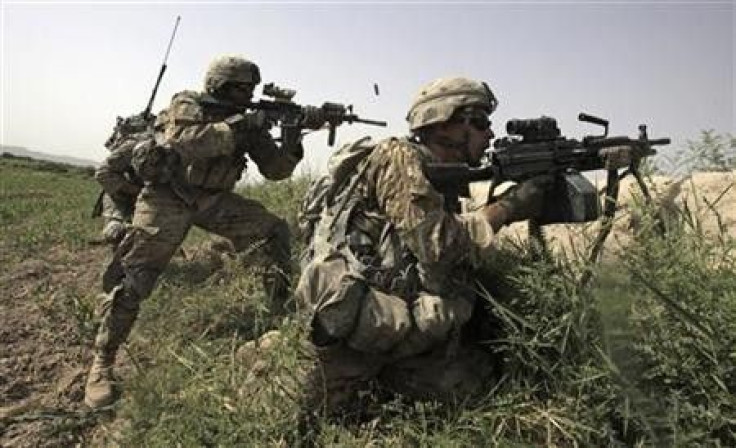U.S. Involvement in Middle East: 2 Reasons to Scale Back
ANALYSIS

The U.S. involvement in the Middle East has spiked since the 9/11 attacks.
U.S. efforts in the region has so far “claimed more than 6,000 American lives, cost more than $1 trillion, and consumed countless hours for two presidents and their senior staff,” said Richard N. Haass, President of The Council on Foreign Relations, in a Project Syndicate commentary.
Haass said the U.S. had (and still has) legitimate reasons for being involved in the Middle East.
The U.S. was attacked on 9/11 by terrorists based in that region. The region still has vast reserves of oil and gas. Iran “is moving ever closer to developing nuclear weapons,” which could destabilize the region and prompt others to follow suit. Moreover, the “unique American tie to Israel” will likely always warrant some level of U.S involvement in the region.
Still, these reasons do not justify the current (high) level of U.S. involvement.
Al-Qaeda has been significantly weakened, culminating in the recent killing of its former leader Osama bin Laden. Haass believes the prospects for “peacemaking efforts” are poor. He also believes the expensive U.S. strategy of “massive nation-building” in Iraq and Afghanistan is clearly not working.
Instead, he advises the U.S. to focus more on the Far East.
It is hard to exaggerate the rising importance of Asia’s economy. Many predictions, including this one from the IMF, predict that the size of China’s economy (in PPP terms) alone could exceed that of the U.S. in just a few short years.
“Much of the twenty-first century’s history will be written” in Asia, said Haass.
He pointed out that U.S. companies already export more than $300 billion in goods and services to the Far East annually. Moreover, the U.S. is a big recipient of capital from Asia; the U.S. government alone has received over $2 trillion of loans over the years from China and Japan.
What is the U.S. foreign policy objective in the Far East?
According to Haass, it is maintaining overall regional stability, honoring alliance obligations with allies, deterring North Korean aggression and incentivizing China to not use its power coercively.
Dominique Moisi, a French political scientist, thinks the U.S. should involve itself less in foreign affairs in general (and especially in the Middle East).
The U.S. has faced several serious foreign threats its modern history, including those from Germany during WWII and those from the Soviet Union after WWII.
In the early 21st century, however, the U.S. does not face such threats.
Russia is much weaker than the Soviet Union. China’s clear priority is domestic stability and economic growth, not global domination, said Moisi in a Project Syndicate commentary. As for the threat of terrorism from the Middle East, staving it off does not require a “massive military budget or huge deployments of U.S. troops all over the world,” he said.
Instead, the bigger threat to the U.S. may be the relative decline of its economic standing in the world.
Moisi said the U.S.’s deteriorating infrastructure has become “a drag on its competitiveness,” “an insult to its international image” and “a risk to the safety of its citizens.”
The U.S. should do more to revive economic growth in general, create jobs and reduce the budget deficit, he said.
Modern history has repeatedly illustrated the importance of economic power.
The fall of the Soviet Union was largely caused by economic weakness. The rise of China, conversely, is almost solely fueled by economic strength.
If the U.S. wants to retain its superpower status as much as it possibly can, it should put its economy on the forefront and spend less effort fighting foreign entities that pose less threat than U.S. economic weakness.
© Copyright IBTimes 2024. All rights reserved.











